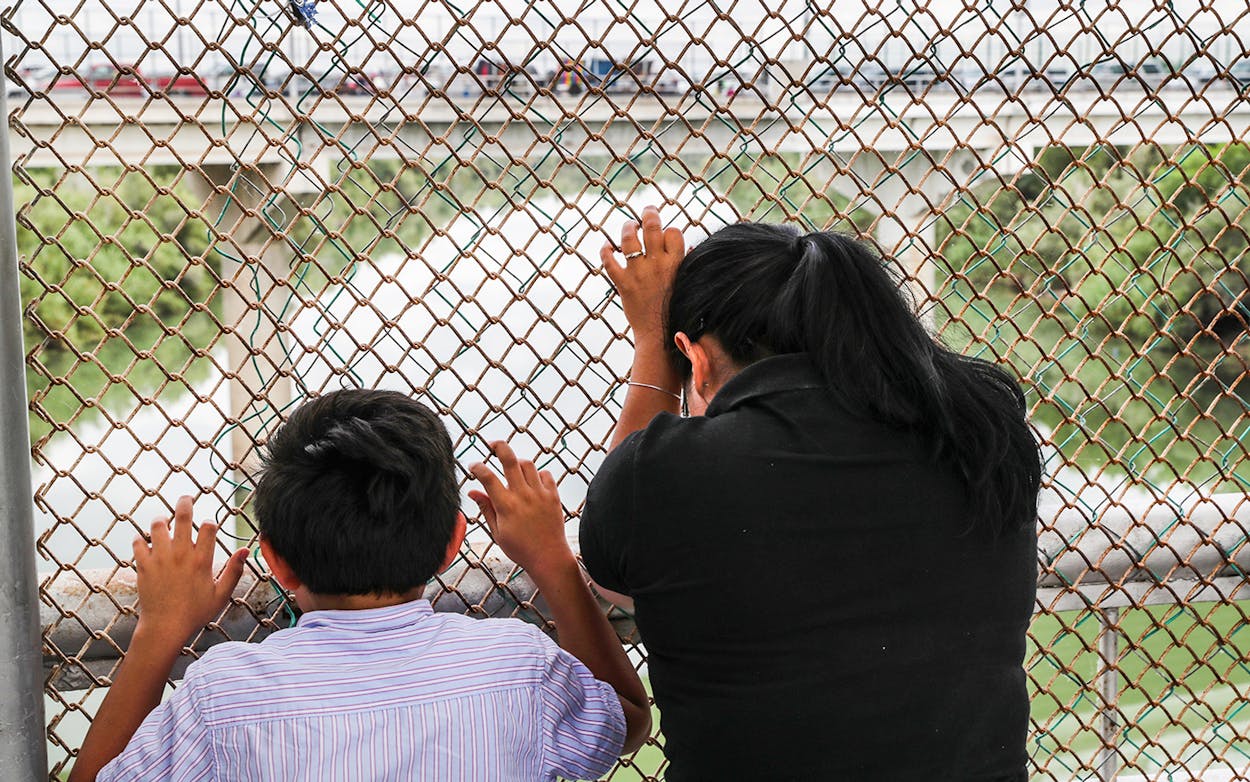Immigrants seeking asylum who enter the United States through Mexico will be sent back to Mexico to await their court appearances in the U.S., under a new agreement between the U.S. and Mexico that was announced Thursday by the U.S. Department of Homeland Security.
Typical of previous immigration actions under the Trump administration, Thursday’s announcement signals a major change to the nation’s immigration policy, carrying potentially life-threatening implications for asylum seekers while offering few concrete details and further complicating what was already a delicate and complex process for immigration attorneys and advocates and their asylum-seeking clients.
According to the DHS statement, asylum seekers will be processed by DHS and given a “Notice to Appear” for their immigration court hearing before being sent back to Mexico. The statement also said the Mexican government “has made its own determination to provide such individuals humanitarian visas, work authorization, and other protections,” and that asylum seekers will “have access to immigration attorneys and to the U.S. for their court hearings.” But it’s unclear how any of that will actually be carried out, sowing confusion and sparking outrage among immigrant advocates and those who provide legal aid to asylum seekers.
Jonathan Ryan, executive director of RAICES, an immigrant advocacy group, called the announcement a “half-baked decision” that is “dangerous and illegal,” while Congressman Joaquin Castro, of San Antonio, said in a statement that “the mechanics of how this policy will be implemented, its legal justification, and the level of humanitarian assistance given to those being forced to wait in Mexico remain unanswered.” Castro called the decision “the single biggest assault to date by this Administration on the world’s most vulnerable populations coming to America,” adding that “history will not look favorably on today’s announcement.”
President Donald Trump and Mexican president Andrés Manuel López Obrador had reportedly been working on an agreement to send asylum seekers back to Mexico, but an official arrangement was never publicly announced, and DHS Secretary Kristjen Nielsen made clear in Thursday’s statement that the U.S. made this decision on its own. Serious concerns remain that Mexico is ill equipped to handle an influx of immigrants awaiting asylum cases in the U.S. According to the Washington Post, López Obrador’s proposed budget for 2019 calls for a 20 percent cut to Mexico’s already overwhelmed Commission for Assistance to Refugees, and the country was criticized for its incompetent response to the “caravan” of Central American migrants—many of them women and children seeking asylum in the United States—that traveled through Mexico and arrived at the U.S. border in November.
A DHS official told Vox that this action does not apply to asylum seekers for whom Mexico is their home country. But asylum seekers fleeing violence or persecution in Central America traveling through Mexico on their way to the United States are particularly vulnerable, and Mexico can be a dangerous place to wait. Civil rights organizations and immigrant advocates have routinely argued that Mexico is not safe for refugees and asylum seekers, highlighting high murder rates and an increasing risk of kidnapping, trafficking, and extortion, particularly along the border. According to the Post, kidnappings happen so frequently in Reynosa, which borders McAllen, that a shelter there run by a Catholic charity has been forced to require its migrants not to leave the property, for their own safety. Just yesterday, Mexican officials announced that two Honduran teens who had traveled with the migrant caravan were found killed in Tijuana, raising further questions about Mexico’s ability to keep migrants safe.
If recent trends hold, wait times in Mexico will likely be longer and result in denials and deportation for more asylum seekers than ever before. Syracuse University’s nonpartisan TRAC research center tracks immigration court data and recently released its full-year 2018 statistics, finding that 65 percent of asylum cases were denied nationwide in 2018, the highest percentage of denials since TRAC began compiling data in 2001, while the immigration court backlog in Texas alone has grown by 30 percent since January 2017. In Texas, 86 percent of asylum cases were denied last year, tied with 2016 for the most in any year since 2001.
Immigrant advocates say that the longer asylum seekers are forced to wait in Mexico, the more danger they will likely be in. “We’ve spent the last few weeks safeguarding a group of LGBTQ+ migrants in Tijuana, providing housing and security because we know they would be imperiled otherwise,” RAICES’s Ryan said. “Still, they’ve faced harassment from neighbors, Mexican nationalists, and ordinary Tijuana residents in the time they’ve been stuck across the border; their safety will be far more difficult to ensure if they’re required to stay in Tijuana—a city known to be dangerous to women and LGBTQ+ people in particular—for the months or years it will take them to proceed through the asylum process.”
The announcement will likely spur legal challenges from immigrant rights groups. It comes one day after the American Civil Liberties Union successfully sued to block the Trump administration’s last asylum-related immigration action, which would have denied asylum to migrants fleeing gang violence or domestic abuse.
- More About:
- Mexico
- Donald Trump






